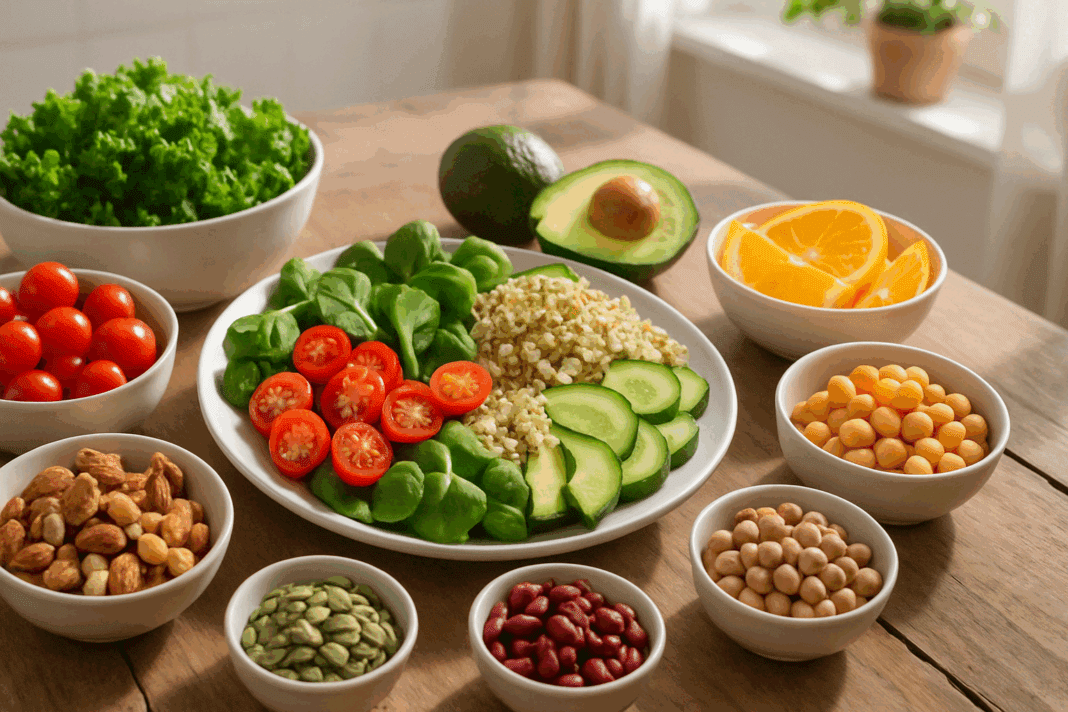For many people seeking a healthier, more ethical, or environmentally sustainable way of eating, vegetarianism presents a compelling option. But is a vegetarian diet healthy? The answer depends not only on what is excluded from the diet but also on what is included. A well-planned vegetarian diet can offer extensive health benefits, while also aligning with personal, cultural, and ecological values. As interest in plant-based nutrition grows, understanding what is vegetarianism and how to adopt it properly is more important than ever.
You may also like: Plant Based Diet vs Standard American Diet: What the Latest Studies Reveal About Long-Term Health Outcomes
Understanding What Is Vegetarianism
At its core, vegetarianism is the practice of abstaining from the consumption of meat, poultry, and fish. However, variations exist. Lacto-ovo vegetarians, the most common type, consume dairy and eggs. Lacto-vegetarians consume dairy but not eggs, while ovo-vegetarians include eggs but exclude dairy. A key question often arises: are eggs and cheese allowed on vegetarian diet plans? The answer depends on the specific type of vegetarianism adopted. Knowing what type of vegetarian would be able to eat this or that food helps people plan accordingly and avoid confusion.
The difference in vegan and vegetarian diet choices lies in their strictness. Vegans eliminate all animal products, including honey, gelatin, and even some types of wine filtered with animal-derived agents. In contrast, vegetarians maintain a bit more dietary flexibility. This difference in vegan and vegetarian diet philosophy can influence both nutrient intake and health outcomes.
Health Benefits of a Vegetarian Diet
The benefits of vegetarian diet patterns have been well-documented in scientific literature. Studies consistently show that plant-based eating patterns can help reduce the risk of chronic diseases such as heart disease, type 2 diabetes, hypertension, and certain cancers. One major reason for these positive outcomes is the higher intake of fiber, antioxidants, and phytonutrients found in whole plant foods.
Vegetarian diets tend to be lower in saturated fat and cholesterol, which may contribute to better cardiovascular health. In clinical trials, individuals following a vegetarian diet program have shown improvements in blood pressure, insulin sensitivity, and weight management. These findings support the assertion that not only is vegetarian healthy, but it may be a preventive measure against some of the most common lifestyle-related conditions.
Moreover, the pros of being vegetarian extend beyond health. Environmental sustainability, animal welfare, and ethical considerations also motivate many people to switch. From a planetary health perspective, the advantages of vegetarian diet adoption include lower greenhouse gas emissions, reduced land and water use, and decreased deforestation.
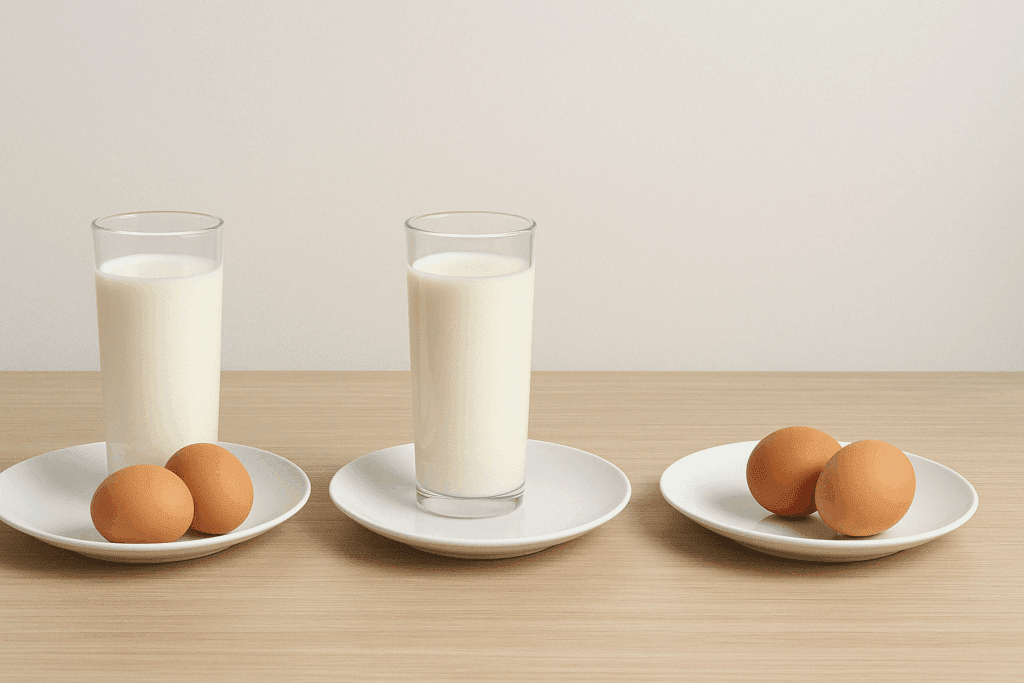
What Should I Know About Vegetarians Before Adopting the Diet?
Before switching to a vegetarian lifestyle, it’s essential to consider the nutritional needs that may be impacted by the absence of animal products. For example, vitamin B12, iron, zinc, and omega-3 fatty acids are nutrients that are more abundant in animal-based foods and may require attention in a vegetarian food plan. Fortunately, fortified foods and supplements can help fill these gaps.
Many beginners wonder, “Can vegetarians eat meat occasionally?” By definition, no. A vegetarian does not eat meat, though some people may adopt a mostly plant-based diet with occasional meat—known as flexitarianism—but this is distinct from vegetarianism. Another common query is, “Do vegetarians eat rice?” The answer is yes—rice, along with other whole grains, is a staple in most vegetarian diet plans.
Also, the question of whether vegetarians consume dairy fats frequently arises: do vegetarians eat butter, and can vegetarians eat butter without compromising their values? Most lacto-vegetarians include butter, but vegans do not. Similarly, can vegetarians eat eggs and milk? Lacto-ovo vegetarians do, while others may abstain depending on their personal or ethical beliefs. Thus, understanding what can I eat vegetarian style is crucial for maintaining a balanced, nutritious, and consistent diet.
Developing a Balanced Vegetarian Nutrition Plan
A well-structured vegetarian nutrition plan prioritizes variety, nutrient density, and balance. Legumes, whole grains, nuts, seeds, fruits, and vegetables should serve as the foundation of daily meals. These foods are rich in complex carbohydrates, protein, fiber, vitamins, and minerals. To avoid deficiencies, attention should be given to iron and zinc from plant sources like lentils, chickpeas, tofu, and pumpkin seeds, often paired with vitamin C-rich foods to enhance absorption.
A common misconception is that vegetarians may struggle to get enough protein. However, a vegetarian diet meal plan that includes beans, lentils, soy products, whole grains, and dairy or eggs can meet protein requirements without issue. For example, combining rice and beans provides all essential amino acids, making it a complete protein source. For those seeking structure, a vegetarian diet schedule that includes planned meals and snacks throughout the day can help maintain consistent energy levels and nutritional adequacy.
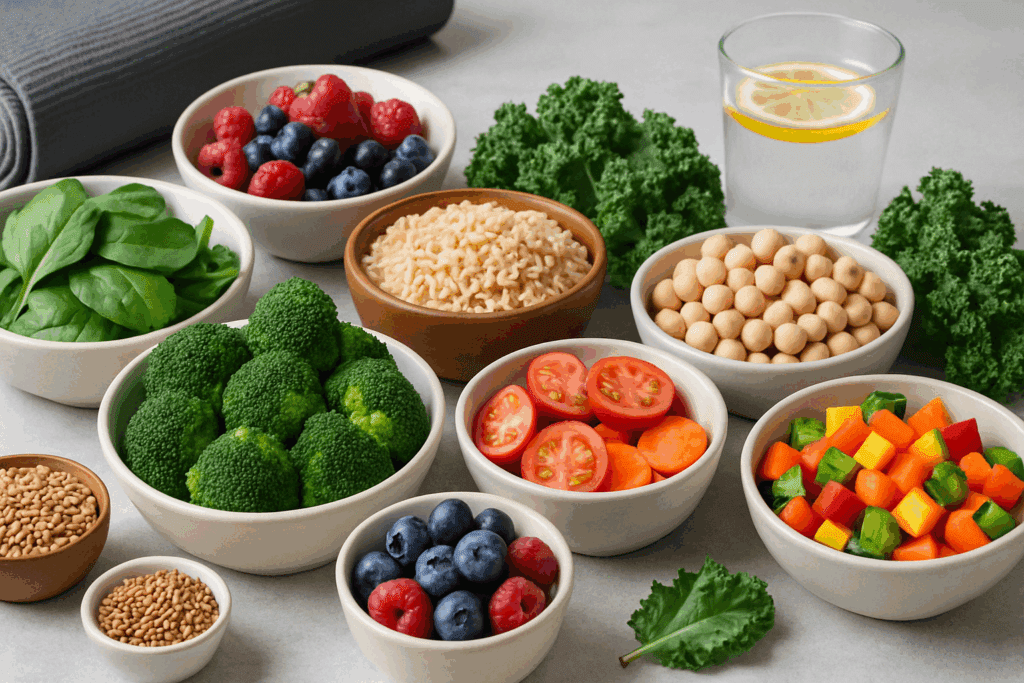
Vegetarian Diet for Beginners: Practical Tips
Becoming vegetarian for beginners involves more than simply cutting out meat. It requires learning new cooking techniques, reading food labels, and experimenting with plant-based proteins. One helpful strategy is to gradually replace meat with plant-based alternatives like lentils, tempeh, or mushrooms in familiar dishes. Another tip is to explore global cuisines—Indian, Mediterranean, and Thai dishes are often naturally vegetarian and packed with flavor.
Planning ahead is key to avoiding nutrient gaps and making the transition sustainable. A vegetarian diet program that includes a variety of whole foods minimizes the need for supplements while maximizing nutritional diversity. Keeping meals satisfying is also important for long-term success. This is where a vegetarian diet plan that includes hearty soups, grain bowls, and protein-rich snacks can help curb cravings and boost satiety.
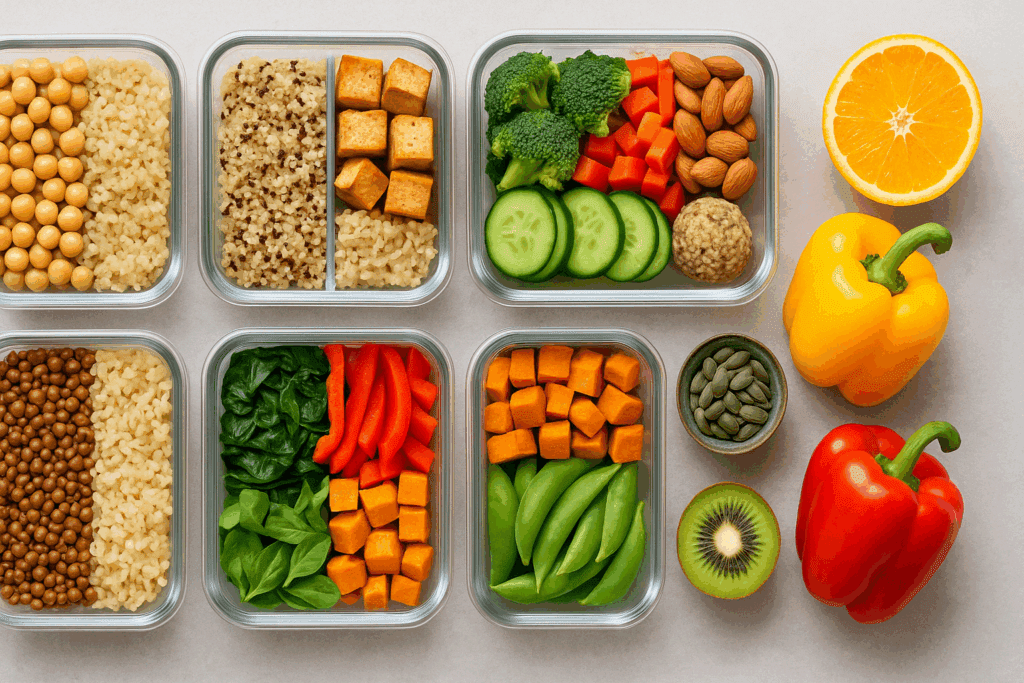
Is a Vegetarian Diet Healthy Compared to Other Diets?
To assess whether a vegetarian diet is healthy in comparison to other popular diets, it’s helpful to consider how it stacks up against lower-carb eating styles like the ketogenic diet. There’s a growing interest in comparing the ketogenic diet vs low carb options and exploring whether s keto low carb patterns are sustainable in the long run.
When examining the low carb diet keto diet trend, it’s clear that both reduce carbohydrate intake, but keto requires a drastic shift toward fat metabolism. Many wonder: is keto a low carb diet, and is a keto diet sustainable? Technically, yes—keto is a type of low-carb diet, but one that demands strict macronutrient ratios to maintain ketosis. While some people thrive on it, others find it hard to sustain due to its restrictive nature and lack of dietary fiber.
Comparatively, a vegetarian diet can offer more flexibility and variety while still supporting weight loss and metabolic health. Unlike keto, which often limits fruits and whole grains, a vegetarian food plan encourages their inclusion—both of which are rich in antioxidants, fiber, and phytonutrients. For this reason, some experts argue that while keto may offer short-term benefits, is keto a good diet long-term for most people remains questionable.
For those trying to choose between keto diet vs low carb diet or a plant-based pattern, it’s important to recognize that vegetarianism offers a different route—one that emphasizes sustainability, micronutrient density, and cardiovascular protection. While keto may prioritize fat burning, a vegetarian diet promotes overall well-being without the potential downsides of prolonged carb restriction.
Addressing Common Questions About Vegetarian Diets
As more people transition to plant-based eating, questions arise about food choices and lifestyle compatibility. For example, does vegetarian eat butter or is it off-limits? As mentioned earlier, lacto-vegetarians often consume dairy fats, including butter, while vegans do not. Clarity on such details can help individuals maintain consistency in their vegetarian practices.
The topic of eggs and dairy can also create confusion. Can vegetarians eat eggs and milk? It depends on their specific type of vegetarianism. Lacto-ovo vegetarians include both, while stricter vegetarians may avoid one or both. These distinctions help answer questions like what can I eat vegetarian style when dining out or meal prepping.
Another common question is whether a vegetarian diet can be nutritionally complete. With proper planning, it certainly can. Key nutrients like iron, B12, iodine, calcium, and omega-3s should be monitored, especially in more restrictive forms of vegetarianism. Fortified foods, plant-based milk, and supplementation when needed can support long-term health.
For those just starting out, a vegetarian diet for beginners might benefit from structured guidance, such as a sample vegetarian diet schedule or a week-long vegetarian diet meal plan. These tools can offer clarity, boost confidence, and help people stay on track. With a little preparation, becoming vegetarian can be a rewarding and health-promoting lifestyle shift.

Comparing Vegetarian Diets and Low-Carb Trends
With increasing awareness of the ketogenic diet vs low carb distinctions, people often compare plant-based diets to these lower-carb alternatives. A common theme is that low-carb diets emphasize protein and fat while limiting carbohydrates, including those from fruits and legumes. Yet, this restriction may reduce intake of critical nutrients and fiber.
When evaluating low carb diet keto diet adherence against plant-based eating, several contrasts emerge. Keto diets typically require the exclusion of whole grains and many fruits, which are cornerstones of vegetarian eating. Is keto no carbs? Not exactly, but it is very low in carbs. In contrast, a vegetarian diet embraces carbohydrate-rich foods like sweet potatoes, oats, and quinoa—foods shown to support cardiovascular health and digestive function.
While keto may offer rapid weight loss initially, a vegetarian diet program supports long-term wellness through anti-inflammatory, nutrient-rich foods. Therefore, when asking is a keto diet sustainable, it’s critical to consider the physical, psychological, and environmental factors at play. Vegetarianism, grounded in variety and moderation, may offer greater adherence and health outcomes over time.
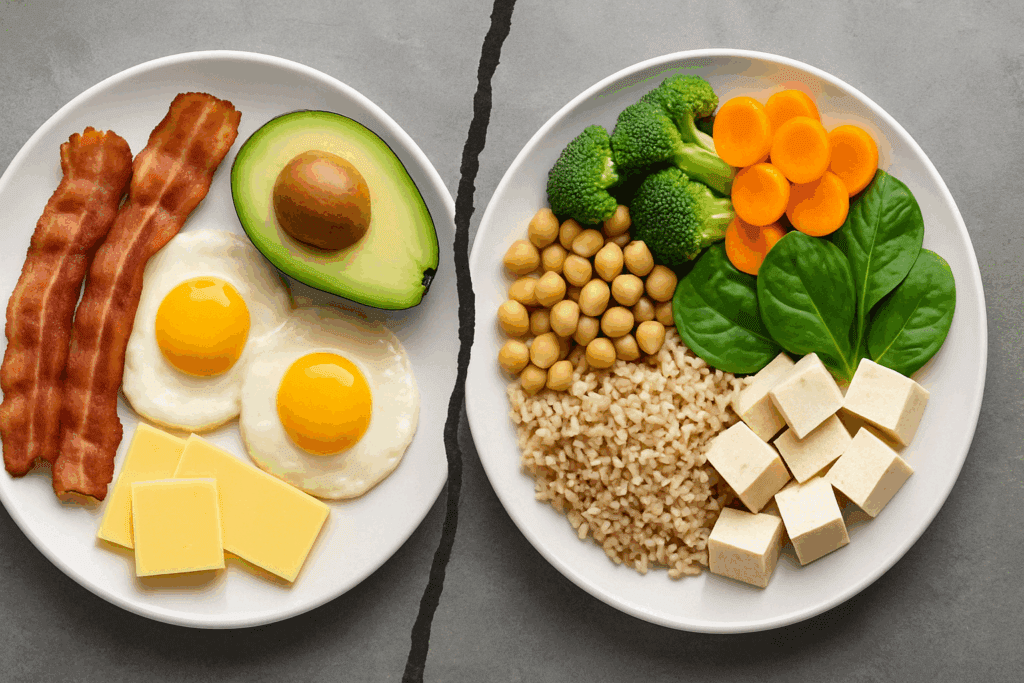
Frequently Asked Questions: Is a Vegetarian Diet Healthy?
1. Can a vegetarian diet support high-performance athletic training?
Absolutely. A well-balanced vegetarian diet plan can provide the energy, macronutrients, and micronutrients needed for athletes engaged in endurance, strength, or high-intensity training. Elite athletes like Venus Williams and Novak Djokovic have shown that peak performance is possible without meat. A strategically developed vegetarian nutrition plan includes plant-based proteins such as tempeh, tofu, seitan, and legumes, paired with iron-rich vegetables and whole grains to optimize oxygen delivery. What type of vegetarian would be able to eat this level of variety? Most commonly, lacto-ovo vegetarians, who consume both eggs and dairy, benefit from the widest range of protein sources, but even vegans can meet athletic demands with careful planning.
2. What are some long-term effects of following a vegetarian diet on mental health?
Emerging evidence suggests that a vegetarian diet may positively influence mood, partly due to the high intake of antioxidants, polyphenols, and complex carbohydrates that support stable blood sugar levels. A vegetarian diet meal plan rich in whole grains, leafy greens, berries, and legumes promotes healthy neurotransmitter function. However, those transitioning should be mindful of vitamin B12, iron, and omega-3 intake, which are vital for brain function. Is vegetarianism healthier for mental health across the board? Not necessarily—it depends on the diet’s quality and nutrient diversity. Still, when done right, the benefits of vegetarian diet choices may extend beyond physical health into cognitive and emotional well-being.
3. How can families transition together to a vegetarian lifestyle without stress?
Becoming vegetarian for beginners can be easier when approached as a collective family effort. Start by introducing familiar dishes with vegetarian swaps—such as lentil tacos instead of beef or chickpea nuggets in place of chicken. A flexible vegetarian food plan that includes meals the entire family enjoys can prevent resistance, especially from children. Involving kids in meal planning and grocery shopping gives them agency and increases curiosity. When everyone understands what is vegetarianism and feels included, the transition becomes a bonding experience instead of a dietary challenge.
4. What should I know about vegetarians and their dietary needs as they age?
As vegetarians age, nutritional priorities shift, with increased focus on calcium, vitamin D, and B12. Bone health and cognitive function are common concerns, so a vegetarian diet schedule should evolve to include fortified plant milks, leafy greens, nuts, seeds, and supplements where necessary. Aging vegetarians may also need more protein to preserve muscle mass; adding legumes, soy, and dairy or egg sources into the vegetarian diet program can help. Are eggs and cheese allowed on vegetarian diet plans for seniors? Yes, for lacto-ovo vegetarians. Regular health checkups and nutritional assessments ensure that long-term vegetarians continue to thrive.
5. Can vegetarians eat butter and still be considered vegetarian?
This is a frequent point of confusion. Do vegetarians eat butter? The answer is yes—many do. Butter is derived from milk, not meat, so it fits within a lacto-vegetarian framework. However, vegans avoid it since it’s an animal by-product. Can vegetarians eat butter alternatives? Absolutely. Options like avocado oil spread, coconut butter, and olive oil provide healthier fat profiles and align with a heart-conscious vegetarian diet. Understanding these nuances helps clarify what can I eat vegetarian-style without compromising ethics or nutrition.
6. How does the vegetarian diet compare to the Mediterranean diet in terms of health outcomes?
Both diets are plant-forward and have been associated with reduced risk of chronic diseases. The Mediterranean diet includes fish and moderate dairy, while the vegetarian diet omits meat and sometimes eggs and dairy. While both are rich in antioxidants and fiber, the vegetarian diet plan may require more supplementation of B12 and omega-3s. What is the difference between vegan and vegetarian diets in this context? Vegans avoid all animal products, which necessitates even more careful nutrient tracking. Still, the advantages of vegetarian diet practices—such as reduced inflammation and improved cardiovascular biomarkers—make it a strong contender among evidence-based dietary patterns.
7. How do vegetarians navigate social events where meat is central to the menu?
This is a common challenge, especially for those new to vegetarianism. What should I know about vegetarians in social contexts is that preparation is key. Offering to bring a dish ensures there’s something satisfying and aligned with your vegetarian diet program. Over time, friends and family often become more accommodating. Clear communication about dietary preferences and boundaries, including whether can vegetarians eat meat occasionally (they cannot), helps prevent misunderstandings. Flexibility in ingredients and creativity in preparation can keep meals enjoyable even at meat-centric gatherings.
8. How do different types of vegetarians accommodate cultural food traditions?
Cultural and religious backgrounds shape how individuals adapt their vegetarian diet. For instance, Indian lacto-vegetarians often use ghee, yogurt, and paneer in everyday meals, while Seventh-day Adventists commonly follow vegan or near-vegan diets for spiritual and health reasons. What type of vegetarian would be able to eat this varies depending on tradition and belief. Adapting dishes like stews, curries, or dumplings to fit a vegetarian diet plan helps preserve cultural identity. The pros of being vegetarian in multicultural settings include creativity in meal preparation and a deeper appreciation of global cuisine through plant-based adaptations.
9. Are there unexpected benefits of vegetarianism beyond health and environment?
Yes—many report that adopting a vegetarian lifestyle enhances their sense of alignment with personal values, boosts mindfulness in eating, and fosters greater awareness of food systems. The benefits of vegetarian diet living may include stronger community ties through shared meals or participation in local food movements. There’s also a psychological sense of empowerment from choosing a diet that reduces harm and promotes sustainability. Is a vegetarian diet healthy for your soul, too? Many long-term vegetarians describe their lifestyle as spiritually or ethically fulfilling in ways that transcend physical health. These subtle advantages of vegetarian diet habits often reinforce long-term commitment.
10. How do you ensure balanced meals when eating out as a vegetarian?
Dining out requires a proactive approach. Researching menus beforehand, calling ahead to ask about vegetarian options, or customizing sides into a meal can keep your vegetarian nutrition plan intact. Knowing what can I eat vegetarian-style at restaurants takes practice but gets easier over time. Ethnic cuisines—like Ethiopian, Thai, or Middle Eastern—often offer naturally vegetarian meals that align with your vegetarian diet meal plan. For those still asking, does vegetarian eat butter or can vegetarians eat eggs and milk when dining out, clarifying your personal dietary boundaries with the server helps avoid confusion. Over time, these strategies make eating out both enjoyable and nutritionally sound.

Final Thoughts: Is a Vegetarian Diet Healthy in the Long Run?
In evaluating the question, “Is a vegetarian diet healthy?” the evidence strongly supports the health-promoting potential of a thoughtfully designed plant-based eating pattern. When individuals understand what is the difference between vegan and vegetarian diets and plan their meals with nutritional adequacy in mind, they can reap the many benefits of vegetarian diet choices.
The advantages of vegetarian diet practices span multiple dimensions, including heart health, weight management, environmental sustainability, and ethical alignment. Whether you’re exploring a vegetarian diet schedule, wondering what should I know about vegetarians, or comparing vegan vs vegetarian diet approaches, one thing remains clear: success lies in preparation, variety, and mindfulness.
Compared to lower-carb diets like keto, vegetarianism offers a more balanced, nutrient-dense, and fiber-rich alternative. While questions like is keto a good diet or is keto a low carb diet persist in popular culture, it’s equally important to ask whether these approaches are sustainable and aligned with long-term health goals. In contrast, a well-planned vegetarian diet is not only sustainable but also backed by decades of scientific evidence supporting its role in chronic disease prevention and overall well-being.
Ultimately, the decision to adopt a vegetarian lifestyle is a personal one, informed by health goals, values, and preferences. Whether you’re drawn by the pros of being vegetarian or simply curious about what can I eat vegetarian-style, know that with proper planning, the path to plant-based living can be both nourishing and fulfilling.
Was this article helpful? Don’t let it stop with you. Share it right now with someone who needs to see it—whether it’s a friend, a colleague, or your whole network. And if staying ahead on this topic matters to you, subscribe to this publication for the most up-to-date information. You’ll get the latest insights delivered straight to you—no searching, no missing out.
Further Reading:
Vegetarian diet: How to get the best nutrition
What to know about the vegetarian diet
Disclaimer
The information contained in this article is provided for general informational purposes only and is not intended to serve as medical, legal, or professional advice. While NewsHealthWatch strives to present accurate, up-to-date, and reliable content, no warranty or guarantee, expressed or implied, is made regarding the completeness, accuracy, or adequacy of the information provided. Readers are strongly advised to seek the guidance of a qualified healthcare provider or other relevant professionals before acting on any information contained in this article. NewsHealthWatch, its authors, editors, and contributors expressly disclaim any liability for any damages, losses, or consequences arising directly or indirectly from the use, interpretation, or reliance on any information presented herein. The views and opinions expressed in this article are those of the author(s) and do not necessarily reflect the official policies or positions of NewsHealthWatch.

